



 |
  |
 |
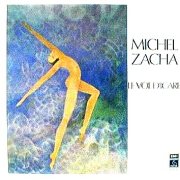 |
Promesses d'Atlantides Vol. 2: Le Vol d'Icare (1974, 36.12) ****/TEsquisse d'IcareBe Here and Now L'Enfant et la Mer Zit Vivez Vos Rêves Prière Labyrinthe Le Vol d'Icare La Terre |
Current availability:
Mellotron used:
Trying to quantify Michel Zacha's work is a near-impossible task; what do you call this stuff? Progressive? Jazz? Folk? Experimental? Chanson? All of the above? His second album, Promesses d'Atlantides Vol. 2: Le Vol d'Icare, is a fascinating record, of the type that will quite certainly reward repeated plays, featuring lashings of Zacha's superb, jazzy piano work, particularly fiery on L'Enfant Et La Mer, while the fantastic, jammed out semi-title track, Le Vol D'Icare, is an absolute winner.
Noted French synthesist Georges Rodi plays Mellotron on a couple of tracks, with background strings on L'Enfant Et La Mer and more upfront ones on the slow-building Vivez Vos Rêves, not to mention his fab synth work (ARP 2600?) on closer La Terre. As I've already said, this is excellent, more than worthy of your listening time, if not really for the Mellotron.
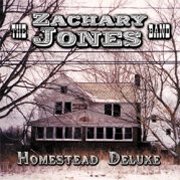 |
Homestead Deluxe (2004, 50.13) ***½/TT |
|
| Static on Country Radio High Sierra Household Accessories Shady Lane Drive Lullaby Pioneer's Lament Of Dreams and Dreaming The Ballad of Rachel Corrie |
The Lesser Traveled Road Tale of the Tall Oak Homestead Deluxe Letter From a Frontier Town Driving West Virginia Reprise |
|
Current availability:
Mellotron used:
Why are The Zachary Jones Band filed under 'Z', you may ask? Like Max Webster and others before him, the elusive Mr. Jones is nowhere to be found in the credits and, in actuality, doesn't actually exist, so 'Z' it is. They describe themselves as 'traditional American-folk harmonies converging with intense blues-rock riffs and exotic Latin/jazz percussion', which loosely translates to 'slightly countryish American folk-rock', which is no bad thing, certainly in comparison to the mush that comes out of Nashville these days. Homestead Deluxe is their debut album and is actually a very pleasant listen, with gorgeous picked guitar work on several songs, not least excellent opener Static On Country Radio.
Electric guitarist Bill Bechtel doubles on Mellotron, laying down a highly evocative string part on Static On Country Radio, with more of the same, plus opening cellos on Shady Lane Drive and some very nice flutes indeed on Lullaby. More of those strings on Pioneer's Lament, although that's yer lot, sadly. So; a very pleasant album, with some genuinely moving moments, mostly clustered together at the beginning, although it all tails off slightly towards the end. Several decent Mellotron tracks, too; Bill tells me it's M400 #809, so if you think a couple of those string notes seem to hold just a little too long, they may have been digitally 'stretched' in the recording process...
See: My Wild Heaven
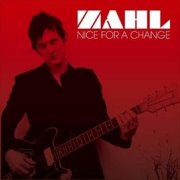 |
Nice for a Change (2007, 41.27) ***/T |
|
| Nice for a Change Friday Nights Oh Life Really Gone Born to Rain What's the Matter Leave Me in Let's Not Worry |
Hold on I'll Try and Make You Cry Love Conquer Us |
|
Current availability:
Mellotron used:
Kaizers Orchestra's Geir Zahl's (sole?) solo effort, Nice for a Change, is a good, Americana-infused English-language singer-songwriter album (enough hyphens!). Highlights? Born To Rain (ho ho), the Neil Young-esque guitar solo on I'll Try And Make You Cry and melancholy closer Love Conquer Us, maybe.
Christer Knutsen plays Mellotron flutes and choirs on Really Gone and wobbly flutes on Hold On. Real? Well, The recording location (Oslo's Propeller Music), according to their website, currently own two Mellotrons 'and twelve tape cassettes', although I've no idea when they were installed. Several other supposed Mellotron albums recorded there use samples, but this one feels genuine, so here it stays until etc. etc.
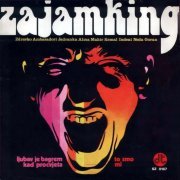 |
7" (1975) ***/TTT Ljubav Je Bagrem Kad Procvjeta To Smo Mi |
Current availability:
Mellotron used:
How can I tell you anything about Zajamking (Zdravko Ambasadori Jadranka Alma Mahir Kemal Indexi Neda Goran)? Going by the limited information I can trace, I would guess that they were a pickup outfit put together by (then) Yugoslav songwriter Slobodan A. Kovačević, but that's pure speculation, to be honest. Their 1975 single, Ljubav Je Bagrem Kad Procvjeta, is a typically folk/pop effort from the time and place, although its flip, To Smo Mi, is slightly (I did say 'slightly') darker.
Plenty of Ranko Rihtman's Mellotron on the flip, with a string part running most of the way through the song and a great, near-solo cello section towards the end, making this worth hearing if you can track it down.
 |
Dragon Chinese Cocktail Horoscope (2008, 43.14) ***/T |
|
| Happy New Year Lucy's Handmade Paper Ads for Feelings Can't We Bring You Home Black Wine Harbor Saints South Kenosha Bang on a Drum |
White Raven Second Sunday in Ordinary Time Experimental Film |
|
Current availability:
Mellotron used:
Oakland's Michael Zapruder comes from a talented family, his siblings both being writers. He operates at the darker end of the singer-songwriter spectrum on his third album, 2008's Dragon Chinese Cocktail Horoscope, highlights including opener Happy New Year, South Kenosha and the epic Black Wine, although nothing here strikes me as redundant.
Matt (Henry) Cunitz plays his M400, with nothing obvious on Lucy's Handmade Paper, a tremulous flute line on Black Wine and vibes on Harbor Saints, Black Wine being the only one of the three with any significant use. Good album, but, despite three credited tracks, don't bother for the Mellotron.
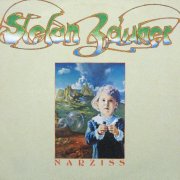 |
Narziss (1976, 41.07) ***/0IntroMartin Pfeffer Zoll Oh' Lindo (Club Euphoria) Die Insel Der Bewu?te Vierte Morgen Chaos Spieglein an der Wand |
Current availability:
Mellotron used:
Although Stefan Zauner is best known at Planet Mellotron Towers for his late '70s membership of Amon Düül II, the most successful period in his professional life came some years later, with the huge success of his band, Münchener Freiheit and their cheeso '88 hits, including the horrible, ELO-channelling Keeping The Dream Alive.
1976's Narziss (presumably referencing Hesse's Narziß und Goldmund) was his first solo album, a collection of pop/prog material that gives the listener some idea of what he might be doing a decade hence. Saying that, it's a good deal better than that sounds, highlights including the proggy Pfeffer, with its jaw-dropping synth work and the rocky Chaos, while I'm hearing echoes of contemporaneous Genesis (Die Insel naughtily utilises the chord sequence from the end of Watcher Of The Skies), plus something not unlike how Yes would sound in a year or two on many tracks. Downsides? The mainstream boogie rock of Oh' Lindo (Club Euphoria) is a fail, while closer Spieglein An Der Wand could've been left out of the running-order without weakening the album in any way.
Now, Zauner credits himself with Mellotron (he used one on two Amon Düül II releases), so where is it? Doubling the string synth? Subliminal choirs on a track or two? Frankly, it's inaudible, making me wonder whether it's really here at all. Complete Mellotronic damp squib, in other words. And to think I've been trying to get hold of this for years... (Thanks to Simon for locating it for me, by the way). Now it can be found online, do you bother? If pop/prog's your thang, then yes, otherwise...
See: Amon Düül II
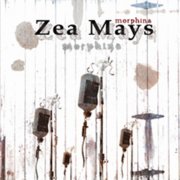 |
Morphina (2007, 57.14) **½/½ |
|
| Abiadura Handian Hondarretik Ondarroara Circus Morphina I Just Turn Off the Lights Gizakiak Gizakia Hil du Garden Astero Ostera Hastera |
Bost-Hamar Zure Zain Zauriak Take Me Home |
|
Current availability:
Mellotron used:
Zea Mays (the scientific name for maize) play a kind of female-fronted indie/metal, vaguely like a Spanish Nirvana, on their sixth album, 2007's Morphina. A little of this stuff goes a long way; nearly an hour is considerably too much, frankly, Aiora Renteria's rather shrill vocal style not being the easiest thing to listen to for any amount of time. Highlights? Maybe opener Abiadura Handian and the quieter Astero Ostera Hastera.
Jose Lastra plays background Mellotron cellos and string lines on Garden; difficult to tell (as so often), but I think these ones are real. Where did they source a working Mellotron? Who knows? Small doses of this album are fine, but its entirety is hard work.
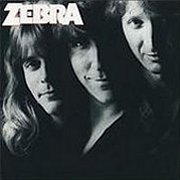 |
Zebra (1983, 38.51) ***½/TTTell Me What You WantOne More Chance Slow Down As I Said Before Who's Behind the Door? When You Get There Take Your Fingers From My Hair Don't Walk Away The La La Song |
Current availability:
Mellotron used:
Zebra were always a band out of time; too late for the 'sophisticated hard rock' crowd and too early for the AOR brigade. Saying that, by the time of their third album, V. 3, they had indeed moved in that direction, but it appeared to be too little, too late.
On replaying Zebra I was reminded how good some of the songs are, particularly Tell Me What You Want and Take Your Fingers From My Hair, although neither are among the four tracks on the album featuring Mellotron choir. I suspect that, like so many of his contemporaries, helium-voiced singer/guitarist Randy Jackson preferred string sounds from synths (why?!), but at the time there was simply no substitute for the old Mellotron 8-voice (and some would say nothing's changed...). All four of the Mellotron songs here are good, pomp-inflected US hard rock; looking at the copyright dates, most of them date from several years earlier and it shows (in the best possible way, of course).
Zebra's follow-up, No Tellin' Lies (***) is good, though not in the same league as their debut and, sadly, Mellotron-free. The band have recently reformed and recorded their rather belated fourth album. I've no idea what they sound like these days, but I suspect they haven't re-attained the heights of their first release. So, if you like a bit of pomp, you could do worse than pick up a copy of Zebra; don't expect an all-out Mellotron classic and you won't be disappointed.
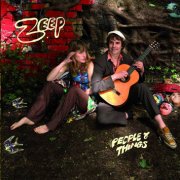 |
People & Things (2009, 33.24) **½/T½ |
|
| Elasticated Master Peace Desert Hidden Surprises Light Your Touch Ghost Town (Isso Não Da) Trem Skit Heads You Win Know More Now |
Just a Little Bit Abstrata Elina e o Sol Lazy |
|
Current availability:
Mellotron used:
Zeep are the duo of Chris Franck and Nina Miranda, the latter being a veteran of the British trip-hop scene with Smoke City and Shrift. Their second album, 2009's People & Things, combines a bewildering array of genres, including the aforementioned trip-hop, samba (Miranda partially grew up in Brazil), jazz, pop and others, not to mention a strange, presumably Portuguese-language cover of The Specials' Ghost Town, Isso Não Da.
Franck and Mike Lindup both play Mellotron: a string note opens Desert, choking off at the end, plus a flute line, with string, flute and cello parts on Abstrata, all sounding comfortingly real, for a change. You're not really going to like this unless modern hipster UK pop's your thing (guess what: it isn't mine), but it actually does what it does with a bit of vim and an ear for a tune, which is more than I can say for most of the bilge I've heard lately. Two good Mellotron tracks, too.
 |
Zhongyu (2016, 54.41) ****/T |
|
| Apple of My Mind's Eye 2 Torture Chambers of Commerce Iron Rice Bowl Has Rusted Hydraulic Fracas Tunnel at the End of the Light Apple of My Mind's Eye 1 Half Remembered Drowning Dream Sleepwalking the Dog |
Wanderland Wonderlust Cat Hair All Over it MBBL All Food Comes From China |
|
Current availability:
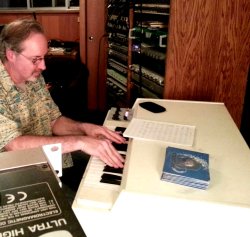 |
Mellotron used:
Zhongyu are a new American progressive outfit, led by multi-instrumentalist Jon Davis, who, after spending a few years working in China, developed a fascination for Chinese music. The end result of several years' hard work, Zhongyu is that rarest of things, a work of real originality in the progressive field, the Chinese influences making themselves felt throughout, both melodically and in the instrumentation.
The band are refreshingly unafraid to experiment, juxtaposing sounds from different cultures and eras, Western influences including King Crimson (sometimes overtly), Univers Zero and their ilk and the more 'difficult' end of fusion. The backing tracks were recorded live, instantly proving the musicianship on display here; most bands couldn't do this if they pieced it together a bar at a time, frankly. Like the best progressive rock, this is far from 'instant'; it should probably be listened to as a whole, although if I had to pick out 'top tracks', I'd say opener Apple Of My Mind's Eye 2, the Crimsonesque Tunnel At The End Of The Light and Sleepwalking The Dog might just be the best examples of their stylistic mash-up.
Davis plays Stick, guzheng (zither family), ARP 2600 and Mellotron, with an improvised string part throughout Sleepwalking The Dog, my only complaint being, why only the one track? Smothering an album in the thing gets tiresome, but it would've worked well elsewhere, too. Anyway, one Mellotron track isn't really much of a reason to buy an album, but this intense, difficult-yet-highly-listenable music is. Buy this album and support genuine progression.
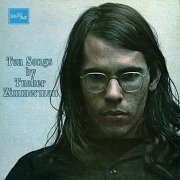 |
Ten Songs (1969, 46.51/73.14) ***½/0 (T) |
|
| Bird Lives October Mornings A Face That Hasn't Sold Out The Roadrunner Children of Fear The Wind Returns Into the Night Running, Running From Moment to Moment Upsidedown Circus World Blue Goose |
Alpha Centauri [Extra tracks on CD: The Red Wind (stereo) Moondog La Rinascente Non c'e Niente Mai En Memoire de Jean Genet Les Visions de Rimbaud The Red Wind (mono)] |
|
Current availability:
Mellotron used:
American émigré Tucker Zimmerman moved to Europe in the late '60s, spending two years in Italy before relocating to the UK, where he met Tony Visconti, recording his debut, Ten Songs, at the end of 1968. While not of any startling originality, it's an unfairly obscure singer-songwriter album, tracks such as October Mornings, The Roadrunner and Alpha Centauri standing out from the pack. RPM's expanded CD issue adds six extras, one in two different versions, generally making a welcome addition to the set.
Although there's no Mellotron on the original album, Zimmerman plays it on two previously-unreleased tracks found on the CD, with pseudo-orchestral strings and what sounds like MkII trombones on Non C'e Niente Mai, although nothing obvious on Les Visions De Rimbaud. A decent effort, then, if not a major contender, with one good Mellotron track on the reissue.
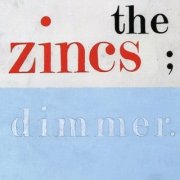 |
Dimmer (2005, 39.36) **½/T |
|
| Breathe in the Disease Beautiful Lawyers Bad Shepherds Passengers Stay in Your Homes A Colt's Tooth Moment is Now! New Thought |
Sunday Night The Meagre Prick |
|
Current availability:
Mellotron used:
After moving to Chicago, British ex-pat Jim Elkington made his first album as The Zincs on his own, 2005's Dimmer being its full-band follow-up. His influences are clearly many and varied, although, sadly, the end result comes out sounding rather like mainstream indie pop/rock, albeit the style's better end, at its best on Moment Is Now! and closer The Meagre Prick.
Overdubs were recorded at the city's Mayfair Recordings, whose website gleefully informs the reader that their long-term borrowed M400 "...has a weak motor so no more than four keys can be pressed at the same time...", amply proven by Elkington's wobbly strings all over opener Breathe In The Disease, although he doesn't use it again, more's the pity.
 |
Chairs I Have Known (1996, recorded 1988-89, 73.04) ***/T |
||
| Intro Real Cool Moslems The Dentist What Makes Kurt Weill? The Partial Elegance of Burnt Toast Tango (1989) Holiday for Mooks It's Hot on Mondays Pet Sounds |
5/4 of a Man Walt's World Hawaiian Block Party When in Rome, Stay Home Please Don't Offend Me Cutting an Onion Everybody Dance With Me Dear Hearts and Gentle People Tango (1984) |
7 Theories of Human Nature Nirvana Breakdown Wait Cool Filth Children's Wire Birdhouse Pussy Boy (Motherfucker) |
|
Current availability:
Mellotron used:
Bloody hell, how do I describe L.A. resident Jac Zinder's Chairs I Have Known? Jazz-klezmer? Avant-folk? Gypsy lounge punk? All of the above? The album's a compilation of low-fi recordings made over 1988-89, released two years after his tragic death in 1994 on the brave-yet-foolhardy Catasonic label. It includes several live tracks and lots of stuff that sounds like it was recorded in Zinder's garage, which it probably was, with all but the last four tracks (by Bufadora) recorded with his band Stay Home. His angular sense of humour (as in 'at an angle from most people's') permeates the album, but in a good way, as do his mittel-Europa polka-style musical sensibilities, making this an album that fans of the John Medeski school of New York oddness will probably appreciate, despite emerging from the opposite coast.
Zinder plays the Mellotron (source unknown) himself, with skronky strings on Real Cool Moslems and the odd choir chord and flutes on Holiday For Mooks, although that seems to be it. Well, Catasonic should be lauded for preserving this unique artist's work, although it quite clearly isn't for everyone. As far as its Mellotron use goes, you've heard more and better elsewhere, but if you get a chance to hear the album, the two tracks in questions are worth the effort.
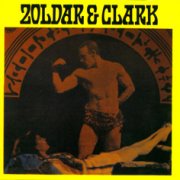 |
Zoldar & Clark (1977, 33.15) ****/TTTTTouch the SkyNow is the Time To Be Alive The Ghost of Way Lunar Progressions In Time Day After Day |
Current availability:
Mellotron used:
It seems there's an interesting story behind Zoldar & Clark: a dodgo tax-scam label, Dellwood, released two albums recorded by New England proggers Jasper Wrath as Arden House and Z&C, quite certainly ensuring that no-one involved made a wooden nickel from them. As a result, what I originally described as 'their lone album' is actually nothing of the sort, as Jasper Wrath also released one of the first American prog albums in 1970. Anyway, Zoldar & Clark crept out in 1977, at a time when lesser outfits were still being signed, playing in a similar, though inferior style. I suppose the best way to describe this stuff is pomp, that peculiarly American cross between prog and radio-friendly rock (as popularised by Styx, Angel, or most of all, Yes-lite crew Starcastle), that never really travelled very well, although they definitely veered towards the more progressive end of the style. Maybe that was their downfall.
Although a couple of tracks head a little too near 'very mainstream' territory (To Be Alive is a particular offender), most of Zoldar & Clark is very good indeed and deserves better than the considerable obscurity in which it finds itself. I was originally under the impression that Joe Cannata played the Mellotron, but it seeems more likely that it was actually Michael Soldan. Whatever, his Mellotron work is excellent, with strings, brass and choir all over the place and some nifty pitchbend parts cropping up here and there. To say you're not going to find this album easily is probably a bit of an understatement, but should you happen to come across a copy for less than top dollar, it's probably worth the investment.
n.b. This was reissued in 2008 as Ghost of Way, intercut with Arden House's Coming Home, although it looks like it's more a 'best of' the two records, which is a shame. More news when I manage to track down a copy.
See: Jasper Wrath | Arden House
Zoltan (UK) see: |
 |
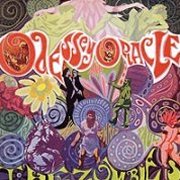 |
Odessey & Oracle (1968, 34.58/79.58) *****/TT½ |
|
| Care of Cell 44 A Rose for Emily Maybe After He's Gone Beechwood Park Brief Candles Hung Up on a Dream Changes I Want Her She Wants Me |
This Will Be Our Year Butcher's Tale (Western Front 1914) Friends of Mine Time of the Season [CD adds: A Rose for Emily (alternate version 2) Time of the Season (alternate mix) Prison Song, a.k.a. Care of Cell 44 (backing track)] |
|
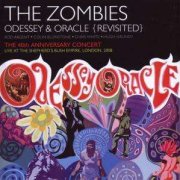 |
Odessey & Oracle {Revisited}: The 40th Anniversary Concert, Live at the |
||
| Care of Cell 44 A Rose for Emily Maybe After He's Gone Beechwood Park Brief Candles Hung Up on a Dream Changes I Want Her, She Wants Me |
This Will Be Our Year Butcher's Tale Friends of Mine Time of the Season Tell Her No She's Not There I Love You Sticks and Stones |
Can't Nobody Love You What Becomes of the Brokenhearted Misty Roses Her Song Say You Don't Mind Keep on Rolling Hold Your Head Up |
|
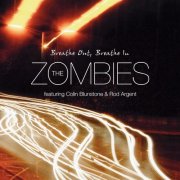 |
Breathe Out, Breathe in (2011, 38.44) ***½/T |
|
| Breathe Out, Breathe in Any Other Way Play it for Real Shine on Sunshine Show Me the Way A Moment in Time Christmas for the Free Another Day |
I Do Believe Let it Go |
|
Current availability:
Mellotrons used:
The Zombies were the intellectuals of the UK beat scene, being grammar school boys from St. Albans, just north of London. Mind you, Mick'n'Keef went to grammar school too, so there goes that argument. Anyway, after a string of hits, including the sublime She's Not There, later devastatingly covered by Santana, the band released their swansong, Odessey & Oracle, to little initial acclaim; they were so low on their label's priorities that no-one coughed up to correct the sleeve designer's idiot misspelling, so Odessey it remains. Between Colin Blunstone's distinctive vocals, Rod Argent's keyboard work and the superb songwriting, it's almost inconceivable that it could fail, but the band split soon after its release, sick of the usual industry hassles. The only reason this album has any standing in the public consciousness now is that Time Of The Season (which sounds like it was recorded at an earlier session) was released as a posthumous single in the States, becoming a massive hit; with appalling irony, the biggest of their career. They refused all entreaties to reform, with Blunstone going on to a sporadically successful solo career and Argent going on to form, er, Argent.
Musically, Odessey is absolutely fantastic; perfect intelligent pop with a psych edge, it reminds me strongly of Fairfield Parlour's wonderful From Home to Home, consisting largely of mature, melancholy little pieces like A Rose For Emily and Beechwood Park. As for Argent's Mellotron, Care Of Cell 44 has a wonderful string part, as does Hung Up On A Dream, which adds flutes to the mix. Changes opens with a beautifully-recorded Mellotron flute part, reprising throughout the song, although Brief Candles is slightly less special. It's a shame they didn't use it more (where have you heard this before?), but three superb Mellotron tracks is three more than you can usually expect. Either way, this is an absolute late-'60s classic and an essential buy. Incidentally, Big Beat's '30th Anniversary Edition' contains not only the mono and stereo versions of the album, but finds room for three alternate versions, including A Rose For Emily with a Mellotron flute part presumably removed from the album version, although a backing track for Care Of Cell 44 removes the Mellotron strings.
Forty years on... The reconstituted band (sans guitarist Paul Atkinson, who died in 2004) played a three-night run at West London's Shepherd's Bush Empire in March 2008, playing two sets, one of which consisted of the whole of Odessey & Oracle, in sequence. The resulting album, Odessey & Oracle {Revisited} seems to've reversed the sets, as I'm quite certain that the 'odds'n'sods' one was played first, followed by Odessey... and encores. Anyway, the first set/second disc is less interesting than I remember it, although Colin Blunstone's in fine voice, better moments including an excellent version of Jimmy Ruffin's What Becomes Of The Brokenhearted and an extended Hold Your Head Up (Argent, of course). Disc one is the real reason to buy the set, a note-perfect rendering of their unheralded-then-but-classic-now album, Don Airey's session guitarist brother Keith standing in for Atkinson, plus several other extra players/singers.
I was lucky enough to be present on one of the nights, so can confirm that, sitting to Argent's right, was a regular white M400. Unfortunately, given that he played piano or organ on most Odessey... tracks, the bulk of the album's Mellotron parts (the strings on Care Of Cell 44, Brief Candles and Hung Up On A Dream) were covered by second keyboardist Darian Sahanaja (from Brian Wilson's band), using samples. However, Argent used the real thing on two tracks, the flute part in the middle of Hung Up On A Dream and the beautiful flutes throughout Changes; the latter made the hairs on the back of my neck stand up on the night (quite a sight, I can tell you).
Four years on and the band, or at least, Argent and Blunstone, actually release a new album, Breathe Out, Breathe in, their sixth in, er, the better part of five decades. To be perfectly honest, it could be described as a middle-aged attempt to recreate the magic of Odessey..., the opening title track being one of the weakest tracks here, a bit too 'supper club' for its own good, although track two, Any Other Way, helps to redress the balance. Other stronger tracks include Another Day, I Do Believe (including a ripping pseudo-Hammond solo) and closer Let It Go, even if it has a certain White Shade Of Paleness about it, strangely ending the album rather inconclusively off the dominant. Argent has made comments to the effect that he used 'Mellotron and Memotron', so my guess is that the typically melodic flute part on Shine On Sunshine is the real thing, while the chordal strings on A Moment In Time are sampled, but I'll keep both highlighted until/if I should find out for sure.
So; it goes without saying that if you don't already know Odessey... inside out, you need to own a copy. ...{Revisited} is more for committed fans who'd like to hear how the band tackle the whole thing live, with brief but genuine Mellotron on a couple of tracks, while Breathe Out... is far better than you might expect, if hardly a classic.
See: Argent
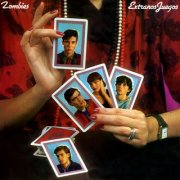 |
Extraños Juegos (1980, 32.29) **½/½ |
|
| Contacto en Zurich No Puedo Perder Mi Tiempo La Venganza de Cthulhu Groenlandia Extraños Juegos Cleopatra y la Serpiente Orquídeas Marchitas La Energía de Plutón |
Aloha (Atardece en el Pacífico) La Rebelión de los Objetos |
|
Current availability:
Mellotron used:
How can Spain's Zombies not have known of the British band? OK, they weren't as well-known as The Beatles or The Stones, but they're weren't exactly obscure, either. Maybe, in those days of limited information exchange, they decided that, since they were unlikely to sell anything outside their home territory, it wouldn't matter. Until now, eh? Their first album (of two), 1980's Extraños Juegos, is essentially new wave, albeit with a Mediterranean twist in places, not to mention the occasional '50s influence (notably on Groenlandia), of all things.
The Lovecraft-referencing La Venganza De Cthulhu features a short, rising Mellotron choir line from Bernardo Bonezzi, with a very background part on Aloha (Atardece En El Pacífico); it's possible another couple of tracks feature similarly background choirs, but they're so low in the mix that they could be almost anything. So; new wave fan? Think you've heard everything? No you haven't. Mellotron fan? Go elsewhere.
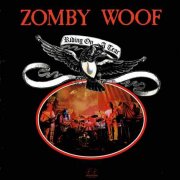 |
Riding on a Tear (1977, 41.40) ***½/TIntroductionSuicide Riding on a Tear Requiem Part 1 Requiem Part 2 Dora's Drive Mary Walking Through the Woods Walking Through the Woods Finale |
Current availability:
Mellotron used:
Zomby Woof (whom I mistakenly referred to as Zomby Wolf for ages) got their name from a Frank Zappa song (on '73's Overnite Sensation, I believe), but had no musical connection with ol' Frank whatsoever. The Bavarian outfit had been around since the early '70s, but apparently didn't consider themselves professional enough to record until 1977, when their demos were picked up by the independent Jupiter label. Riding on a Tear was released later that year and is a typical German progressive release of the time, loosely comparable to acts such as Rousseau or Tibet, while never being in the Novalis league, never mind Grobschnitt.
The album opens with some excellent piano work on Introduction; in fact, the instrumental work is highly competent throughout, especially Matthias Zumbroich's keyboards, including a considerable amount of clavinet, not heard so often on progressive albums from the era. The composition is adequate, although nothing really leaps out at the listener, at least on an initial listen, although there's some excellent jamming on Dora's Drive. Speaking of which, whose weird idea was it to release an edited version of a jammed-out instrumental track as the album's sole single? The '70s, eh?
There's actually very little Mellotron to be heard on the album. Apparently, the band found a broken-down one in the studio and bassist Udo Kreuß spent some considerable time and effort getting it running again, although the only Mellotron I can hear is a male voice choir part on Requiem Part 2. So; do you or don't you? Yes for progressive fans looking for something they haven't previously encountered, but no for the casual listener and no for anyone looking for some serious Mellotron use. Oh and the second two bonus tracks are well worth hearing, though you're unlikely to find this without them anyway, I suspect.
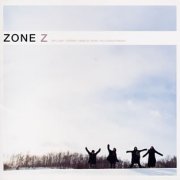 |
Z (2002, 34.05) **½/TTTKaze no Hajimaru BashoGood Days Daibakuhatsu No. 1 Sekai no Hon no Katasumi Kara Boku no Soba ni Secret Base ~Kimi ga Kureta Mono~ Orange no Yuuhi Secret Base (Piano Version) |
Current availability:
Mellotron used:
Zone are one of those totally manufactured, all-female J-pop bands who mean bugger-all in the West (er, are there any who do?), despite an enormously high profile at home. 2002's Z, with its Help!-referencing sleeve, was their debut (followed by O, N and E. No, really), featuring the usual mix of uptempo, slightly rocky efforts and power ballads, of next to no interest to anyone with a jot of musical taste, frankly. I was amused by the Brian May-alike guitar work on a couple of tracks, although I can't say it noticeably increased my listening pleasure.
I've no idea who plays the Mellotron (usual transliteration difficulties), although it's all over the place, with a gentle string part opening Daibakuhatsu No. 1 before it all kicks off, repeating later on, with similar on Sekai No Hon No Katasumi Kara and Orange No Yuuhi. The album's crowning Mellotronic glory, however, is their best-known song, Secret Base ~Kimi Ga Kureta Mono~ (I presume the punctuation's correct), featuring a particularly upfront and lengthy strings part plus flutes, grinding to a halt at the end in a distinctly 'this Mellotron's real' kind of way. Overall, then, musically fairly awful, but Mellotronically surprisingly good. Your choice, methinks.
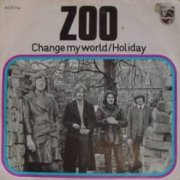 |
7" (1971) **½/T½ Change My World Holiday |
 |
Zoo (1973, 37.05) ***/T½Cold NightSummerday Everybody Knows I'm Here Dedicated to You All Zoo Music Feelings |
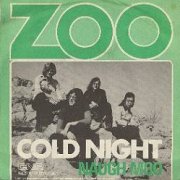 |
7" (1973) ***/TT Cold Night Naugh Moo |
Current availability:
Mellotrons used:
Despite releasing four singles and an album over a several-year period, early Dutch progressive outfit Zoo are pretty obscure, almost certainly due to their inability/unwillingness to fully commit themselves to playing full-blown prog. Their choice, obviously, but history has proven their short-termism unwise. Their first single, 1971's Change My World b/w Holiday, is a late-period psych effort, both sides vaguely comparable to Procol Harum, albeit, er, nowhere near as good, the flip being the superior track. Keys man Eddy Meyer plays an orchestral-ish Mellotron strings/brass mix on the 'A' to passable effect, although he didn't record with one again for another two years.
Their lone album, 1973's Zoo, is pleasant enough, yet simultaneously highly undemanding, being more of a typical mainstream rock album of the era with progressive overtones than a prog album per se. Better tracks include opener Cold Night and Zoo Music (despite the drum solo), although Everybody Knows' rock'n'roll-lite and inexplicable Beatles medley Dedicated To You All are pretty inessential, frankly. Meyer adds Mellotron to a handful of tracks, with strings on Cold Night, I'm Here and the Baby, You're A Rich Man segment of Dedicated To You All, only to any great effect on the first-named.
Zoo's final single from late '73 was a re-recording of the album's Cold Night, its new, funkier arrangement doing it no favours, although oddly-titled instrumental flip Naugh Moo is almost certainly the best thing the band ever wrote, sounding slightly like Trace before that outfit formerly existed. Meyer adds Mellotron to both sides, with nicely upfront string parts that improve even the otherwise dodgy 'A'. Zoo split in '74, bassist Bert Veldkamp going on to play with Kayak, other members forming the equally-obscure Kangaroo; none of their small catalogue is currently available, although downloads can be found. Are they worth hearing? A handful of tracks (principally Naugh Moo) are worth the effort, but, that track aside, we're not exactly talking 'lost classic' here, musically or Mellotronically.
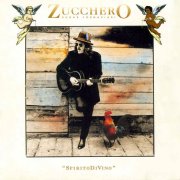 |
Spirito DiVino (1995, 44.36) **½/T½ |
|
| Voodoo Voodoo Datemi una Pompa O.L.S.M.M. Pane e Sale X Colpa di Chi? Il Volo Senza Rimorso Papà Perché |
Così Celeste Alleluja |
|
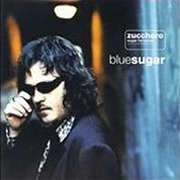 |
Bluesugar (1998, 51.05) ***/TTT |
|
| U Make Me Feel Loved Blue Thin Air If Not Tonight Back 2 U Donkey Tonkey (Temporaneamente) X Sempre Tuo More Than This |
Karma Stai Kalma I Wish You Love I Tempi Cambieranno |
|
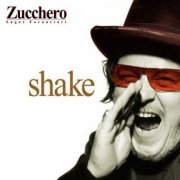 |
Shake (2001, 47.51) **½/TTT |
|
| Sento le Campane Music in Me Porca l'Oca Ali d'Oro Ahum Scintille Baila Dindondio |
Rossa Mela della Sera Shake Tobia |
|
 |
Zu & Co. (2004, 76.58) **½/T |
|
| Dune Mosse Muoio per Te Indaco Dagli Occhi del Cielo Il Grande Baboomba Like the Sun (From Out of Nowhere) Baila Morena Ali d'Oro Blue Pure Love |
A Wonderful World Pippo (Nasty Guy) Hey Man (Sing a Song) Il Volo Così Celeste Diavolo in Me Senza una Donna Il Mare Impetuoso al Tramonto Salì Sulla Luna e Dietro una Tendina di Stelle... Miserere |
|
 |
Fly (2006, 50.57) **½/T |
|
| Bacco Perbacco Un Kilo Occhi Quanti Anni Ho Cuba Libre È Delicato L'Amore è Nell'aria Pronto |
Let it Shine Troppa Fedeltà Nel Cosi Blu [Bonus tracks: Flying Away Shine] |
|
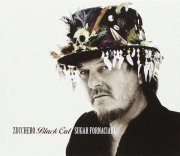 |
Black Cat [as Zucchero Sugar Fornaciari] (2016, 47.23) ***/½ |
|
| Partigiano Reggiano 13 Buone Ragioni Ti Voglio Sposare Ci Si Arrende Ten More Days L'Anno dell'Amore Hey Lord |
Fatti di Sogni La Tortura della Luna Love Again Terra Incognita Voci (Namanama version) Streets of Surrender (S.O.S) |
|
Current availability:
Mellotrons used:
Adelmo "Zucchero" (Sugar) Fornaciari seems to have been around for ever, releasing albums in English for the last decade or so. Going by '95's Spirito DiVino (or however it's spelt - it's a pun, for what it's worth: 'divine spirit'/'spirit of wine' - thanks, Mark...), he's in that 'adult pop' area, sitting next to U2 et al., so don't come here looking for innovation or anything. Actually, most of the material's fairly balladic and middle-aged, making U2 sound cutting edge (if you'll excuse the pun); one for people who don't want anything new. I mean, Eric bloody Clapton plays on the album... A bit of the man's Mellotron on Il Volo, with a nice pitchbent strings part with more regular chords in the chorus and what sounds like a more 'standard' string part in closer Alleluja.
Three years on, Bluesugar says 'no change', but in Italian (no cambiare? Probably not). More mainstream 'adult contemporary listening' (gack!), more teeth-grinding boredom. Four Mellotron tracks on the album, played by the man himself. Thin Air has some fairly upfront strings, while the strings on If Not Tonight sound like they could almost be real, so I'm not sure what the deal is there. More Than This has both flutes and strings, while I Tempi Cambieranno (sung partially in English) has more of those orchestrally-arranged strings. Confusingly, 2001's Shake seems to be available in two different versions, although the differences may be more in the titles than the actual tracks; rather hard to say, when most online literature is in Italian... Usual old crap, although John Lee Hooker's cameo on Ali D'Oro makes a welcome change from Zucchero's vocals. Loads of Mellotron, surprisingly, from both Zucchero and Luciano Luisi. String parts on Ali D'Oro, Ahum (possiby also known as Hasta El Fondo?), Dindondio, Rossa Mela Della Sera and Tobia, with Ahum probably being the best.
As if the issue needed confusing any further, 2004 (2005 internationally)'s Zu & Co. consists largely of songs he's released before performed with famous guests, including his Italian-language version of The Korgis' sublime Everybody's Got To Learn Sometime, Indaco Dagli Occhi Del Cielo. Not much Mellotron, with what sounds like the same version of Shake's Ali D'Oro and a (partial?) re-recording of Spirito DiVino's Il Volo, featuring the stunningly talented Ronan Keating. Ahem. 2006's Fly is spirited enough, I suppose (he said, grudgingly), but it's essentially more of the same, the only standout track being regular album closer Nel Cosi Blu, instantly recognisable as an Italian-language cover of Procol Harum's superb A Salty Dog. Yer man plays Mellotron again, with high-end cellos on Occhi, nothing on the credited Quanti Anni Ho, but uncredited strings on L'Amore è Nell'aria and credited cellos on bonus track Flying Away, a minor cheat, as it's no more than an English-language version of Occhi.
A decade after his last Mellotron album, Black Cat (credited to Zucchero Sugar Fornaciari) is, while nothing earth-shattering, a big improvement on his earlier albums, grittier and bluesier than before. Note those 'er' suffixes, mind... At its best on stomping opener Partigiano Reggiano and Ti Voglio Sposare, the album struggles to maintain momentum, sadly, although it's the best I've heard from him since Bluesugar. Patrick Warren and Max Marcolini both play distant Mellotron strings on Ci Si Arrende and Streets Of Surrender (S.O.S), while Jamie Muhoberac pulls the same non-trick on Terra Incognita, all to little effect. Why bother?
Zucchero finally gave up on the Mellotron, although whether he's replaced it with samples or just ditched the sound is unknown. Anyway, he did the decent thing and sold it to someone good, namely modern Italian prog gods The Watch, who make damn' good use of it. As for the above, Bluesugar and Shake actually have some decent Mellotron work between them, but don't blame me for the musical content...
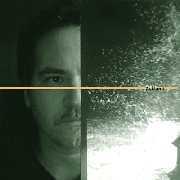 |
Fabio Zuffanti (2009, 41.35) ***/TTE' ProbabileLe Piante Sott'acqua Dormono Cuoci Bene Andiamo Avanti (per il Film) Ottobre Sentieri Nel Ghiaccio Domeniche Senza Tramonto Così a Fondo... |
Current availability:
Mellotron used:
Fabio Zuffanti is bassist and frequently bandleader with a host of current Italian progressive and progressive-related acts, including Finisterre, Hostsonaten and Maschera di Cera, although he's been known to go out on a limb, notably with the post-rock of LaZona. I was expecting something fairly progressive from his first solo album, Fabio Zuffanti, so it's all the more surprising to be confronted with a largely instrumental post-rock-with-beats affair, progressive in spirit but a long way from 'prog' as we know it (Jim). It's almost pointless trying to pick out 'best tracks'; the whole purpose of the album is presumably to be listened to as a whole, placing it a very long way from iPod culture indeed.
Zuffanti has confirmed that he used a real Mellotron on the album, which makes it all the more surprising to hear how he uses it; I can only imagine he takes a few seconds of playing then loops it, either in a sampler or as part of the digital recording process (is there any difference any more?). A real one's in the studio, but we're not hearing it played in real time, as the eight-second rule is broken time and time again. Opener E' Probabile features two or three minutes of the same string chord, with less of the same on Andiamo Avanti (Per Il Film), choirs on Ottobre and more strings on Sentieri Nel Ghiaccio and closer Così A Fondo..., though it's all so far from 'standard use' that it's difficult to know whether or not to recommend it.
An intriguing album, then, though not necessarily one that your prog die-hard's going to like. It's probably more use as relaxing music than, say, something to play in the car; I can't really imagine anyone sitting down and listening to this intently, but I could be wrong... Plenty of Mellotron, but not in a form in which Mellotron spotters are likely to, er, like. Different.
See: Finisterre | Hostsonaten | Maschera di Cera | LaZona | Fabio Zuffanti & Victoria Heward